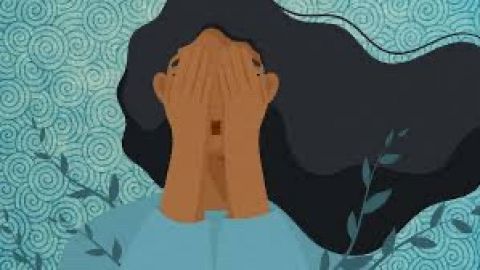I went to a “new” (I saw her a couple of years ago) counselor yesterday and said I wanted to tackle my judgment obsession – the mother of all pain – head on. I was done seeing counselors for other people’s reasons; I had one of my own. It fueled my OCD in the 80s (“something terrible is going to happen and it’s going to be MY FAULT”). It drove me into depression, a deep sense of persecution, and anger in the 90s. In the early 00s it was the guilt flashback – usually in the shower – with all the usual trying to convince myself that it wasn’t really happening – only it wasn’t something being done to me, it was something I was doing. Nowadays it’s the old standby persecution anxieties, albeit less severe than in the 90s. Through it all, I kept working and supporting my family because to do otherwise would call upon myself the worst possible judgment. (If you think that’s a bit of a stretch, you weren’t raised by my dad.)
So the counselor asked a very interesting question. “Am I prepared to pay the price?” In other words, “What would I be giving up if my judgment obsession were resolved?” Say what? But indeed there are almost always trade-offs. Sometimes I wish I were numbed up on drugs again, despite the hardship. Then after thinking about it a few hours, I decided that it’s not that I might actually choose to hang on to the mother of all pain, but that I must be aware of what I am giving up, because if I am not, then at some point I will resist – not give it my all – and that would be a set-up for failure.
After a day of thinking about it, all hell has broken loose in my mind. The fact is, I spend almost as much time jumping in front of the judgment bus as I spend trying to dodge it. I was quite belligerent about my atheism when I was in AA. So when I read in a recent Newsweek poll (http://www.msnbc.msn.com/id/17879317/site/newsweek/) of the growing acceptance of atheism among the younger generation, you would think I would be pleased. I wasn’t. I need my persecution. (Non US readers need to understand that we have not followed the rest of the developed world into secularization – just read the article.) To take an example from inside depressiontribe, quite often members will list several “people who …” among their “dislikes”. If such a person invites me to be their friend, I have been known to make sport of seeing how many of those “people who …”s I could fit myself into.
My awareness of this behavior is not exactly new. I have called myself a contra-chameleon, changing color to clash with my surroundings, for as long as I can remember. If I’m in a group of conservatives, I will argue the liberal position, and vice-versa. “Wallowing in self pity” is one of the “likes” on my profile, and has been since day one. Sometimes I Intellectualize it. “If everyone agrees with a proposition, that means everyone has stopped thinking about it.” “If no one is asking questions, it’s high time somebody did.” In my more touchy-feely moments, I would explain it as a need for unconditional acceptance – as daring people to hate me. “Will you still accept me if I …?” “Yes? OK, how about if I …?”
What’s new is the thought that this may be an impediment to getting better – or worse, some sort of sadomasochistic dance taking place inside my skull. I think in the heavy depression years it could well have been an attempt to gin up the wherewithal to commit suicide. If I can convince myself that I am hated enough, perhaps I can finally overcome my innate fear of death and pull the trigger. I never did, though. Not even an attempt. I knew how people who attempt suicide are judged.



